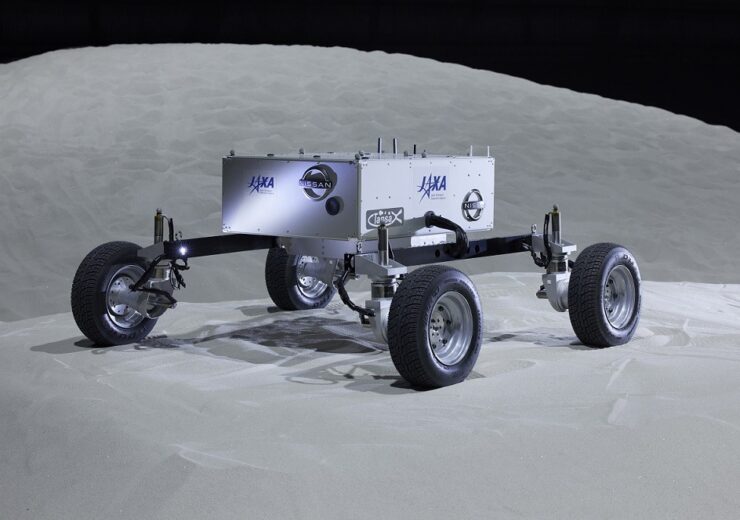The lunar rover features the automaker’s motor control technology to traverse the Moon’s powdery, rocky and undulating terrain

Nissan, JAXA working on driving controllability of the rovers since January last year. (Credit: Nissan Motor Co., Ltd.)
Nissan Motor has unveiled a prototype of lunar rover that is jointly developed with the Japan Aerospace Exploration Agency (JAXA).
The prototype features the automaker’s motor control technology to address the challenges in traversing the Moon’s powdery, rocky and undulating terrain.
Nissan and Japan’s space exploration agency have been working together on driving the controllability of the rovers since January last year.
The JAXA Space Exploration Innovation Hub Center is carrying out research on lunar rovers, which is considered as an important technology for space exploration.
Nissan’s research on lunar rovers applies the motor control technology that was developed through its production of mass-market electric vehicles such as the LEAF.
The company is also deploying its e-4ORCE all-wheel control technology, featured on the all-new Ariya electric crossover, for the development of lunar rovers.
Nissan stated that its e-4ORCE has the ability to improve the lunar rover’s performance over tricky terrain.
JAXA Space Exploration Innovation Hub Center director Ikkoh Funaki said: “JAXA aims to apply the research results to future space exploration.
“We are collaborating with companies, universities and research institutes on projects that are feasible and have potential for commercialisation and innovation.
“By conducting research with Nissan, which has expertise in electrified technologies, we hope to apply our findings to the development of higher-performance lunar rovers.”
According to Nissan, its e-4ORCE technology is designed for the independent control of all four wheels to boost the driver’s confidence in various conditions.
The company, in its joint research with JAXA, is advancing the technology to enhance its performance in sandy terrain and other harsh conditions.
The automaker’s driving-force controls help in minimising the amount of wheel spin based on surface conditions.
By combining the know-how obtained from test-vehicle development with JAXA’s knowledge of rover research, Nissan intends to make a contribution to the evolution of space exploration technology.


